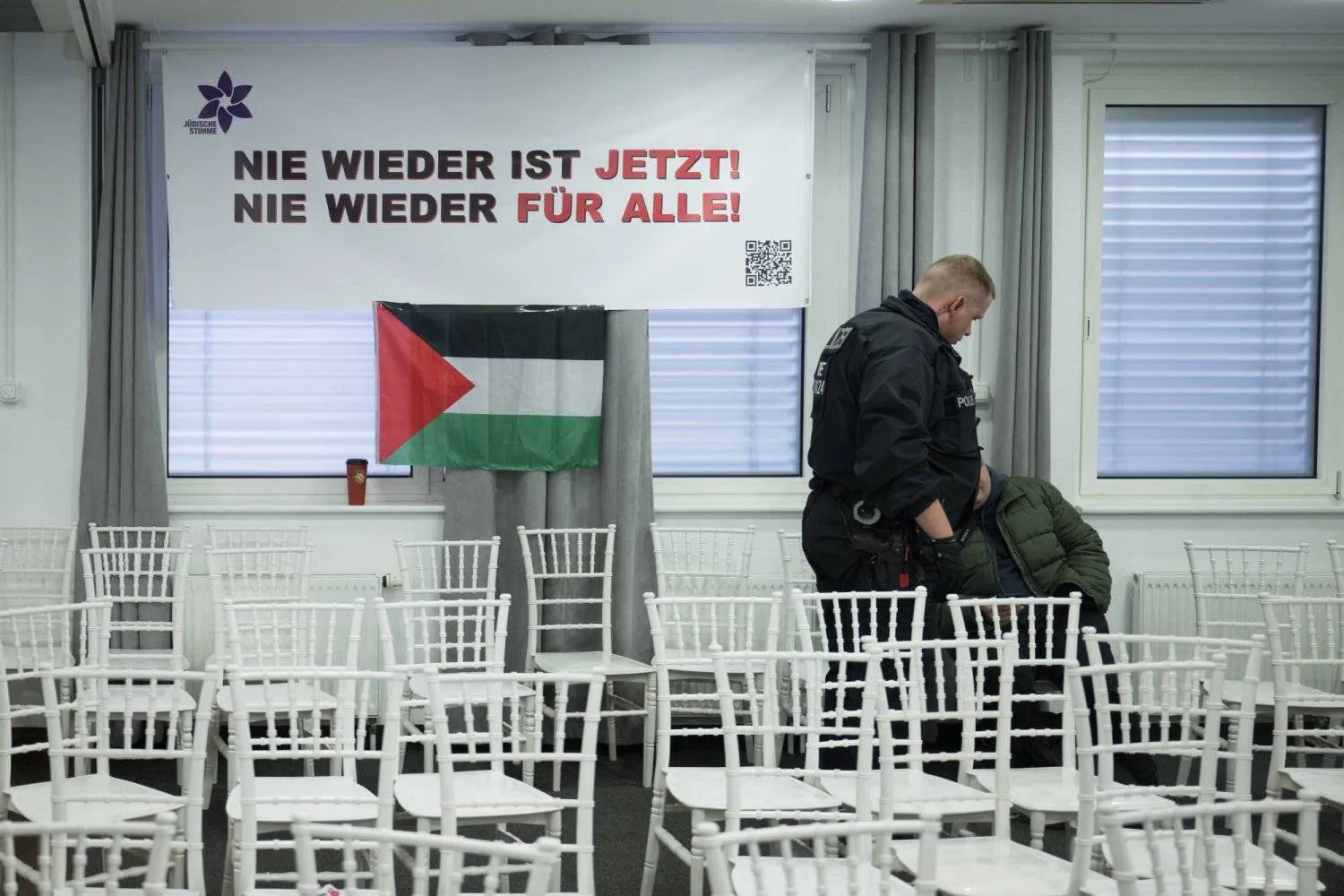German police cut the power and shut down a conference of pro-Palestinian activists on Friday after a banned speaker appeared by video link, organizers said.
The three-day Palestine Congress, promoted by pro-Palestinian groups including former Greek Finance Minister Yanis Varoufakis's DIEM25 party, said it aimed to raise awareness of what it called Israel's "genocide" in Gaza.
The police banned the final two days of the event, citing concern about the potential for hate speech, Reuters reported.
Among the speakers was activist Salman Abu Sitta, author of a January essay that expressed understanding for the Hamas militants who on Oct. 7 raided Israel.
"A speaker was projected who was subject to a ban on political activity," Berlin police said on social media. "There is a risk of a speaker being put on screen who in the past made antisemitic and violence-glorifying remarks. The gathering was ended and banned on Saturday and Sunday."
Organizers of the conference said police intervened when Salman, who according to Stern magazine was banned from entering Germany, began speaking on video.
"The police violence, like we were some sort of criminals, was unbearable for a democratic country," said Karin de Rigo, a parliamentary candidate for the German offshoot of DIEM25. "They not only stormed the stage, they cut the power like we were transmitting violence."
In Germany as in other Western countries, the war in Gaza has stirred growing popular opposition as the Palestinian death toll has mounted.
Germany's backing for Israel is rooted in a desire to atone for the genocide of Europe's Jews in the Nazi Holocaust. The presence of a large, growing Muslim and Arab population in Germany has made the tension particularly acute.
Many protesters have complained that expressions of solidarity with Palestinians are effectively criminalized by authorities on alert for antisemitism.
"It is right and necessary that the Berlin police intervened firmly at the so-called Palestine Congress," Interior Minister Nancy Faeser posted on social media. She earlier had urged police to be on guard for signs of hate speech at the congress.









